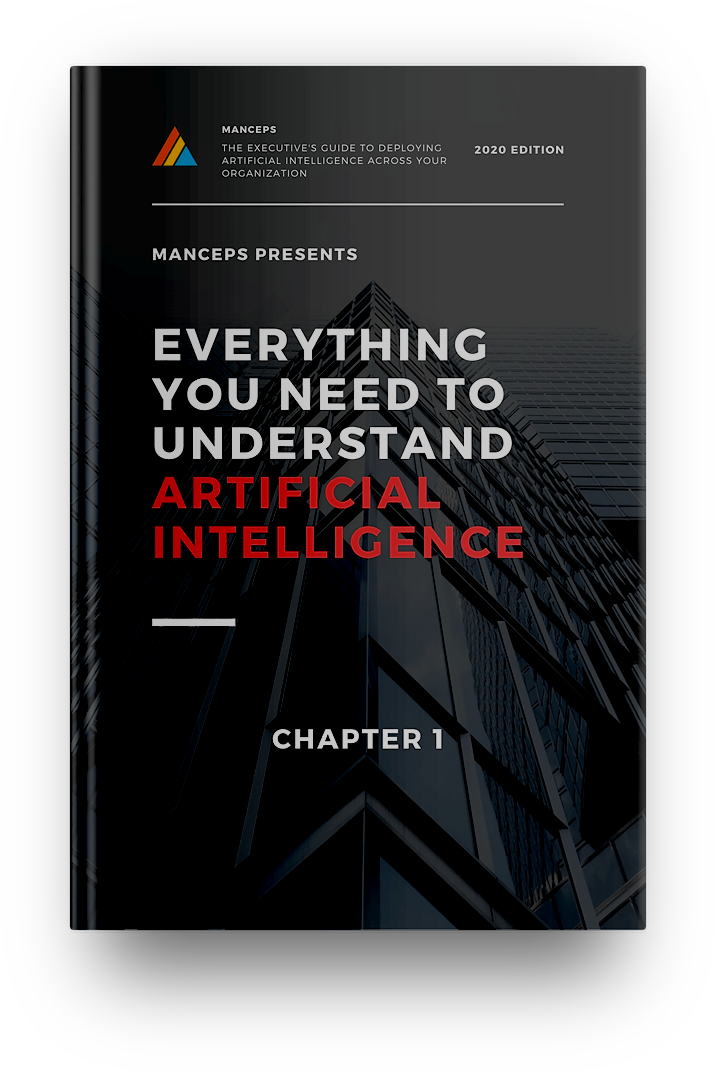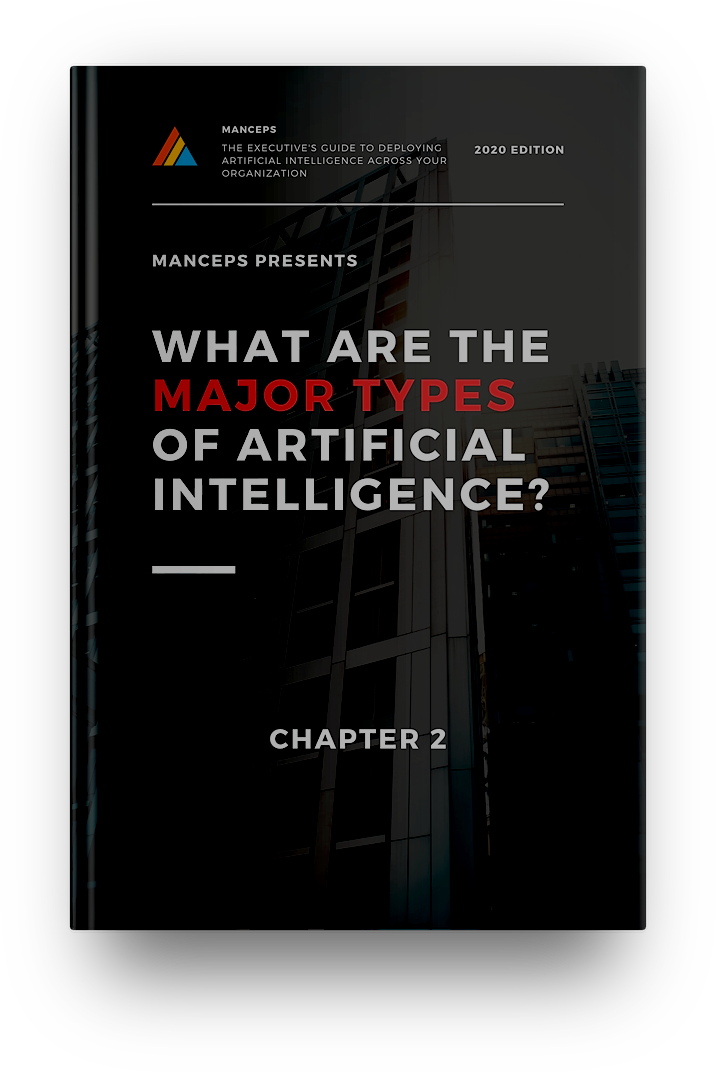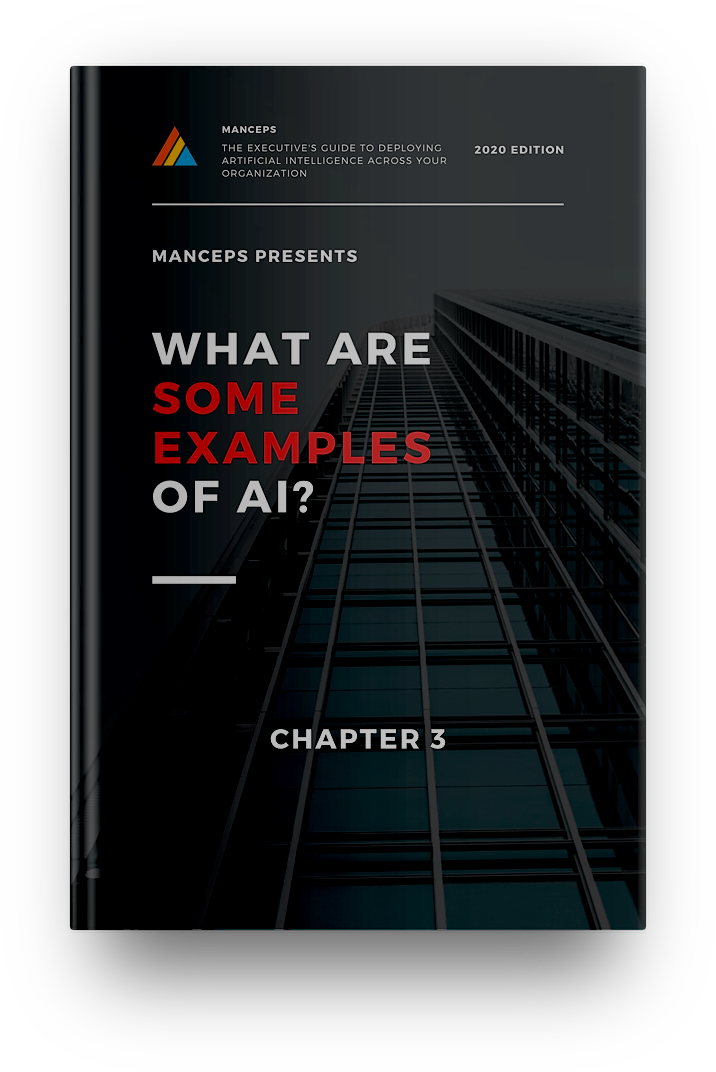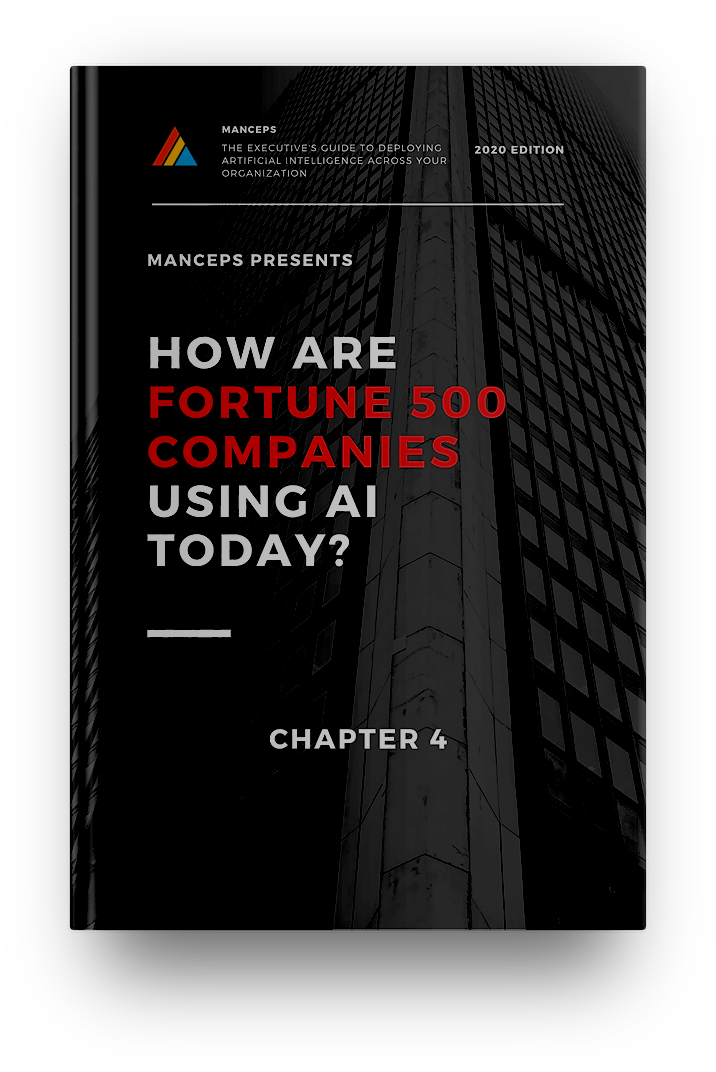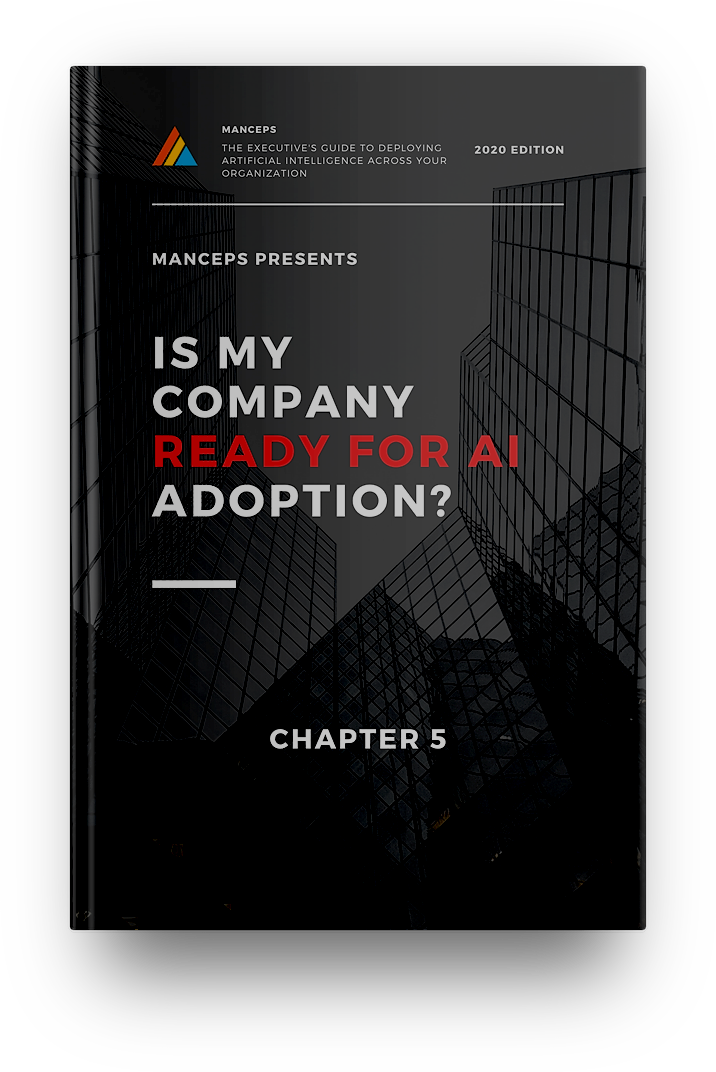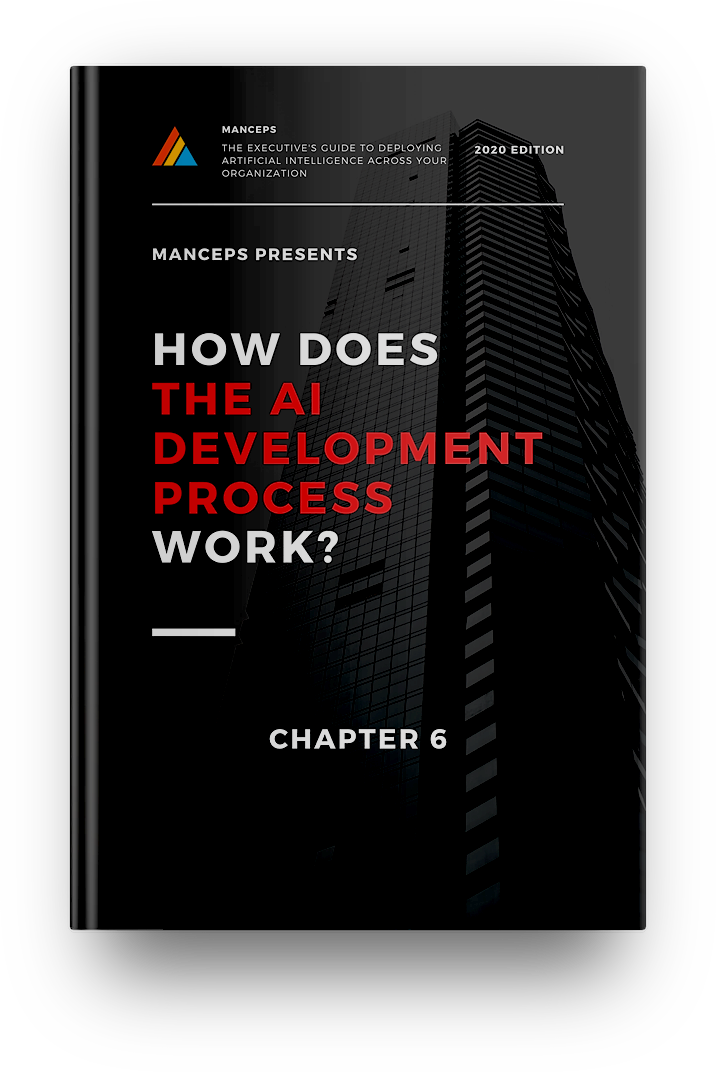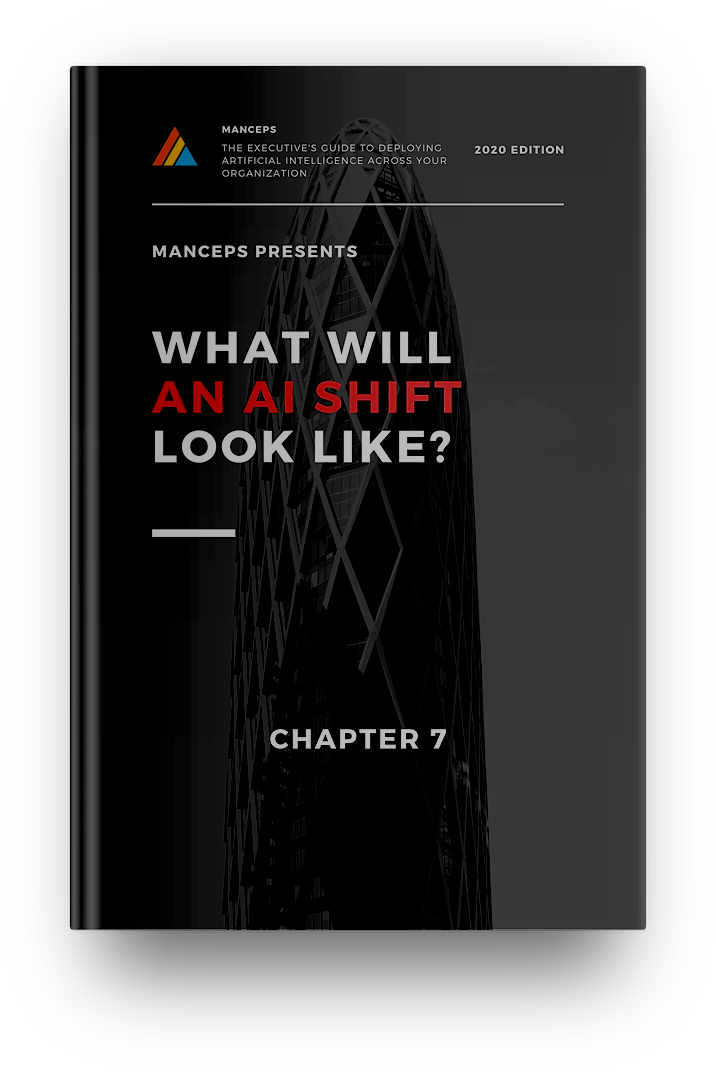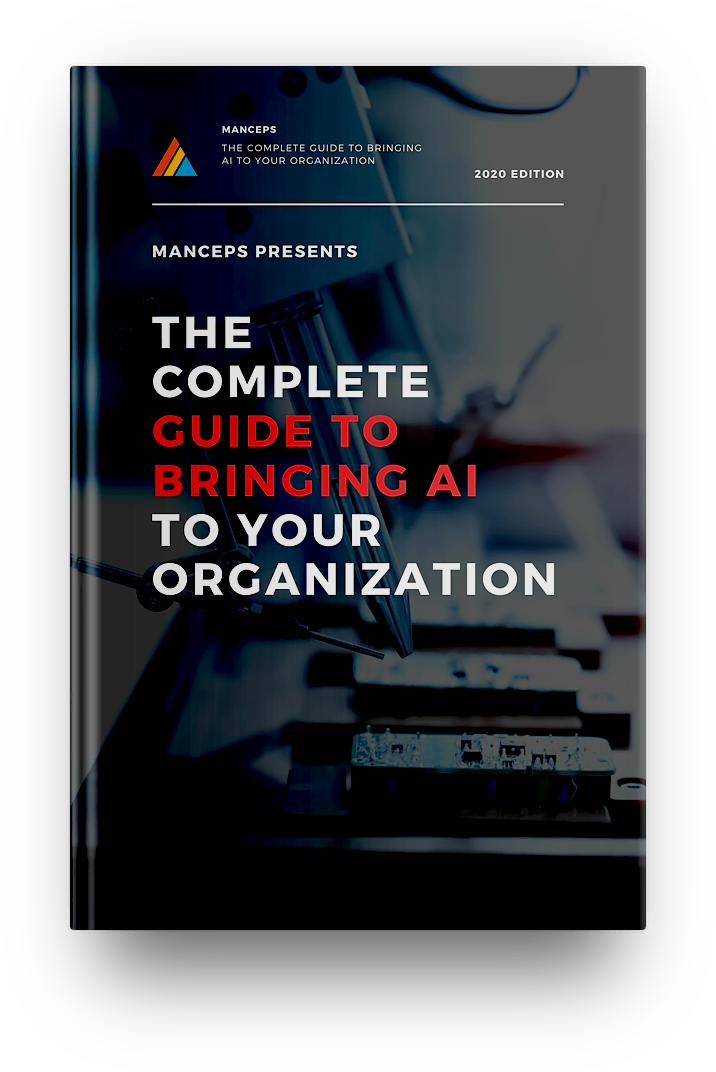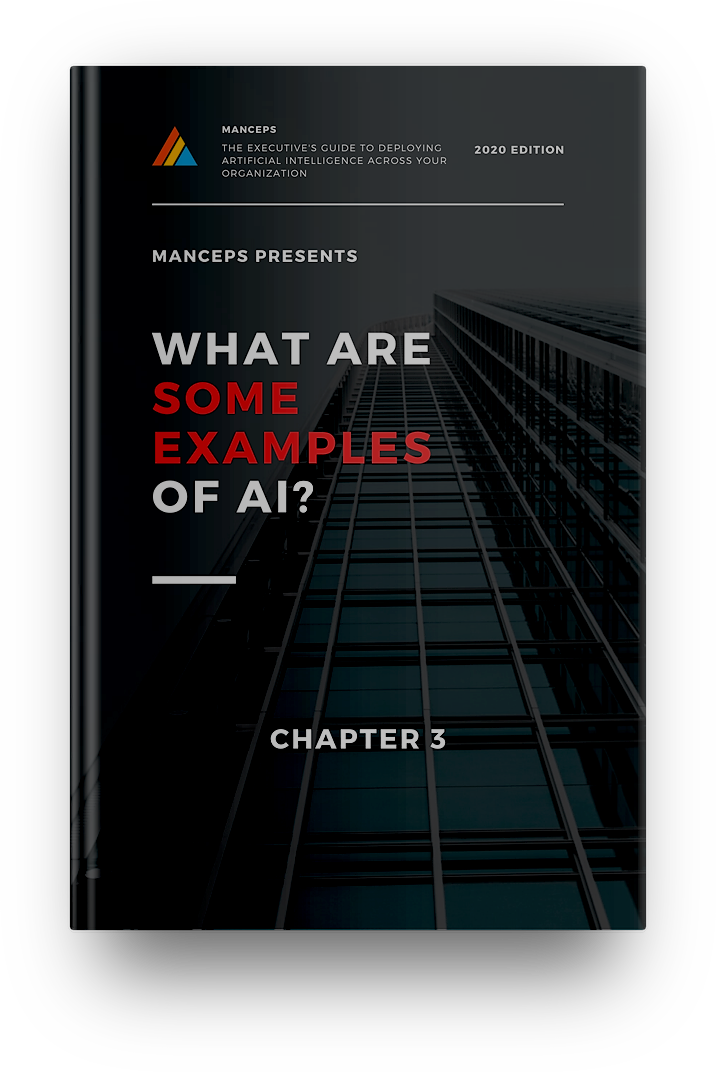
Free Resource
What Are Some Examples of AI?

Getting Specific
In this section, we’re going to get into the specifics of AI and cover some use cases that are being used across a variety of sectors, including Finance, Hospitality, Healthcare, Manufacturing, Product Development, and Smart City Infrastructure.
Natural Language Processing
Natural Language Processing allows computers to make sense of all kinds of communication, from handwritten chicken scratch to speech. This capability has given rise to all sorts of technologies from better spam filters to SIRI.
Finance. AI can help financial institutions bring NLP to large volumes of text and speech data to extract information, gain insights, and streamline manual tasks. Consider bringing automated summarization to legal documents, earnings reports, or job applications.
Hospitality. Interactive chatbots can create custom itineraries and book multiple points of travel. With natural language processing, “I want to go to Paris.” can lead to your customers booking air travel, lodging, restaurant reservations, and hotel tickets all from a single interface.
Healthcare. Natural Language Process can bring automation and summarization to the process of sharing, evaluating, and summarizing patient case files. (See our related case study).
Product Development. Natural Language Processing can support faster prototyping, intelligent programming assistants to make it easier for your team to write code, and machine learning to automatically refactor code.
Retail. Natural Language Processing can help your customers find exactly what they are looking for by speaking to an AI agent in a real way. Suddenly, “I’m looking for a wedding gift for my brother” becomes a back and forth conversation to give the buyer exactly what they want.
Smart City Government. NLP agents can comb social media and automatically aggregate it into actionable insights about how to improve your city. For example, multiple tweets complaining about potholes could surface that as a high-priority item for city planners.
Image Processing
Image processing enables computers to make sense of visual information and detect patterns therein. When thinking about image processing, consider all kinds of footage from photos taken by camera to footage taken by drone. Furthermore, because AIs aren't limited to the visible light spectrum, computers can bring intelligence to thermal imaging, LIDAR, etc.
Finance. Use image processing to keep tabs on markets of importance. For example, monitor shipping docks to keep tabs on supply chains, Walmart parking lots to anticipate fluctuations in retail demand, or oil wells to anticipate commodities futures.
Hospitality. In the Doordash age, how dishes photograph can be just as important as how dishes taste. With image processing technologies, restaurants can optimize plating to ensure that their most profitable dishes are getting the most attention. Similarly, hotels can use image processing to optimize the design, layouts, and promotional photography of their properties.
Healthcare. Use image processing on x-rays to detect disease. So far, AI has been used to detect breast cancer, early-stage Alzheimer’s, pneumonia, eye diseases, bacterial meningitis, and lots of others.
Product Development. By photographing items prone to design errors (like tires), product developers could train an image processing model to identify defects and predict recalls prior to going to production.
Manufacturing. Image processing can help you identify defects across the production line. By imbuing this system with artificial intelligence and self-learning capabilities manufacturers can save countless hours by drastically reducing false-positives and the hours required for quality control.
Retail. Intelligent Video Analytics can automatically and efficiently reduce shoplifting, predict burglaries before they happen, and improve loss prevention at point-of-sale — using the security cameras you already have.
Smart City Infrastructure. Most major cities have a vast network of live traffic feeds. By processing this footage using machine learning, city managers can not only respond to major traffic events automatically but also prevent them. When powered by AI, processing video means cities can have less congestion, better visibility on forthcoming disasters, and alerts for available street parking or expired meters.
Predictive Analytics
You can think of predictive analytics as the ability of an AI model to condense huge volumes of data into insights that people can use and understand.
Finance. Financial organizations have used predictive analytics to identify and target more profitable customers; better manage cash flow; anticipate demand fluctuations, and mitigate risk.
Hospitality. AI can use occupancy data, guest feedback, and self-reported guest data to gauge which upgrades or repairs should be implemented first and which improvements will deliver the best return.
Healthcare. Predictive analytics can be used in all sorts of ways to prevent undesirable outcomes. It can reduce patient no-shows, preempt 30-day hospital readmissions, predict resource allocation across divisions and service centers, and improve overall patient satisfaction.
Product Development. AI models can make accurate predictions about the scope and budget of your initiatives to limit cost overruns and schedule slips.
Smart City Infrastructure. Historical and geographical data can be put to work to predict where crimes are likely to take place. Such “pre-crime” initiatives have seen impressive results across big cities like LA, Chicago, and London.
Machine Learning
Machine learning is an automated process that AI algorithms use to integrate a wealth of information and turn them into action. In the case of predictive analytics, the integration of information leads to prediction. In machine learning, that integration can lead to all sorts of outputs as we’ll discuss below. Furthermore, machine learning uses recursive training to ensure that the conclusions its making are ever-more accurate and useful.
Finance. By analyzing billions of data points, fraud detection systems can actively learn and calibrate in response to new (or potential) security threats.
Hospitality. Most hotels know to adjust their pricing to adjust for seasonal fluctuations in demand; however, machine learning enables elastic pricing at all points of sale to ensure that both hotels and restaurants aren’t leaving a single dollar on the table.
Healthcare. Whereas disease detection typically relies on image recognition models, pharmaceutical research finds patterns in much more complex datasets. It’s unsurprising, then, that machine learning is being used at over 150 startups and 40 pharmaceutical companies to detect and deliver new molecules.
Manufacturing. Machine learning can transform a wealth of data coming from IoT enabled devices into action and automation. Machine learning systems can not only predict when manufacturing equipment needs to be pulled for maintenance but automatically reallocate other resources and lines to offset any losses in productivity.
Product Development. When integrated into the product development process, artificial intelligence makes everything, well, better. Software ships faster with fewer errors. Products leave the factory floor with better reliability and a lower risk of recall. Supply chain predictions are accurate and reliable.
Retail. Machine learning enables brick-and-mortar stores to get the same level of demographic and customer information as their eCommerce counterparts can. Learn who your customers are, how they move through your store, and how store layouts affect purchase decisions.
Greater Customer Personalization
In the AI space, we can think of greater customer personalization as one of the major capabilities enabled by machine learning. By integrating a galaxy of relevant information, companies are helping customers service the perfect recommendation at the perfect time.
Finance. Machine learning can help customers surface the perfect financial product or investment opportunity by integrating a wealth of information such as customer age, credit risk, etc.
Hospitality. Hotels and restaurants are starting to use AI to surface all sorts of thoughtful touches such as a guest’s preferred newspaper, toiletries, pillows, etc.
Healthcare. Healthcare models can transform a patient’s entire medical case file into a personalized health and treatment plan.
Manufacturing. Artificial intelligence is giving rise to all kinds of opportunities for personalized manufacturing. In one use case, companies are using AI to help their customers get custom-built clothing. In another, companies are using AI to produce artificial organs.
Retail. Customizations and recommendations across eCommerce are common but these technologies are coming to brick-and-mortar stores also. Through digital portals and interactive kiosks, AI can help retail stores hyper-customize their signage for each shopper that passes, integrating information about the weather, the shopper’s gender or emotional state, or fluctuations in the supply chain.
Smart City Infrastructure. AI is the master of processing routine requests and detecting abnormalities. Governments can exploit these capabilities to disseminate information, deal with citizen requests, or detect wasteful spending or fraud.
Explore Our Other Guides
We've written up lots of articles to help business professionals orient themselves around AI. Learn how Artificial intelligence can meaningfully change how your organization does business by exploring the resources below.


